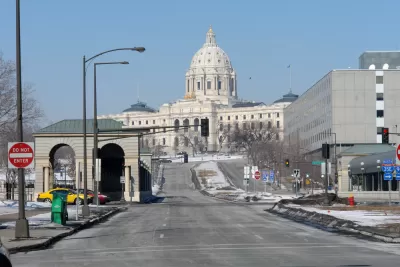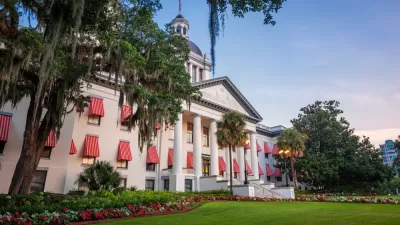Republicans in the Minnesota State Legislature ditched an effort to block voters in the Twin Cities from implementing rent stabilization laws.

"Minnesota Senate Republicans have backed off a previous demand that would have prohibited Minneapolis and St. Paul from enacting rent control as both cities look to put the issue before voters this November," reports J. Patrick Collican.
An earlier article by Max Nesterak details the efforts by St. Paul residents to get rent stabilization legislation on the November 2021 ballot that would cap annual rent increases at 3 percent for all rental units in the city.
Yet another article by Solomon Gustavo details the charter amendments that request permission to implement rent control in that city: "[T]he charter amendments are there to satisfy the exception in Minnesota’s rent control law, which says that charter cities in the state can engage in 'controlling rent on private residential property' only if 'the ordinance, charter amendment, or law that controls rents is approved in a general election.'"
By ditching their effort to preempt rent control in the Twin Cities, Republicans in the state legislature are making a major concession in negotiations for a "pandemic off-ramp" bill that would set the state's recovery and reopening path, according to Collican. Details of the pandemic off-ramp bill include the thorny issues of how to end the state's eviction moratorium and how to apportion housing construction bonds.
"The Senate wants the eviction lifted 105 days after the bill is signed, while the House wants 135 days," according to Collican.
FULL STORY: Senate Republicans drop rent control ban from eviction moratorium off-ramp bill

Alabama: Trump Terminates Settlements for Black Communities Harmed By Raw Sewage
Trump deemed the landmark civil rights agreement “illegal DEI and environmental justice policy.”

Study: Maui’s Plan to Convert Vacation Rentals to Long-Term Housing Could Cause Nearly $1 Billion Economic Loss
The plan would reduce visitor accommodation by 25% resulting in 1,900 jobs lost.

Why Should We Subsidize Public Transportation?
Many public transit agencies face financial stress due to rising costs, declining fare revenue, and declining subsidies. Transit advocates must provide a strong business case for increasing public transit funding.

Wind Energy on the Rise Despite Federal Policy Reversal
The Trump administration is revoking federal support for renewable energy, but demand for new projects continues unabated.

Passengers Flock to Caltrain After Electrification
The new electric trains are running faster and more reliably, leading to strong ridership growth on the Bay Area rail system.

Texas Churches Rally Behind ‘Yes in God’s Back Yard’ Legislation
Religious leaders want the state to reduce zoning regulations to streamline leasing church-owned land to housing developers.
Urban Design for Planners 1: Software Tools
This six-course series explores essential urban design concepts using open source software and equips planners with the tools they need to participate fully in the urban design process.
Planning for Universal Design
Learn the tools for implementing Universal Design in planning regulations.
Caltrans
Smith Gee Studio
Institute for Housing and Urban Development Studies (IHS)
City of Grandview
Harvard GSD Executive Education
Toledo-Lucas County Plan Commissions
Salt Lake City
NYU Wagner Graduate School of Public Service





























